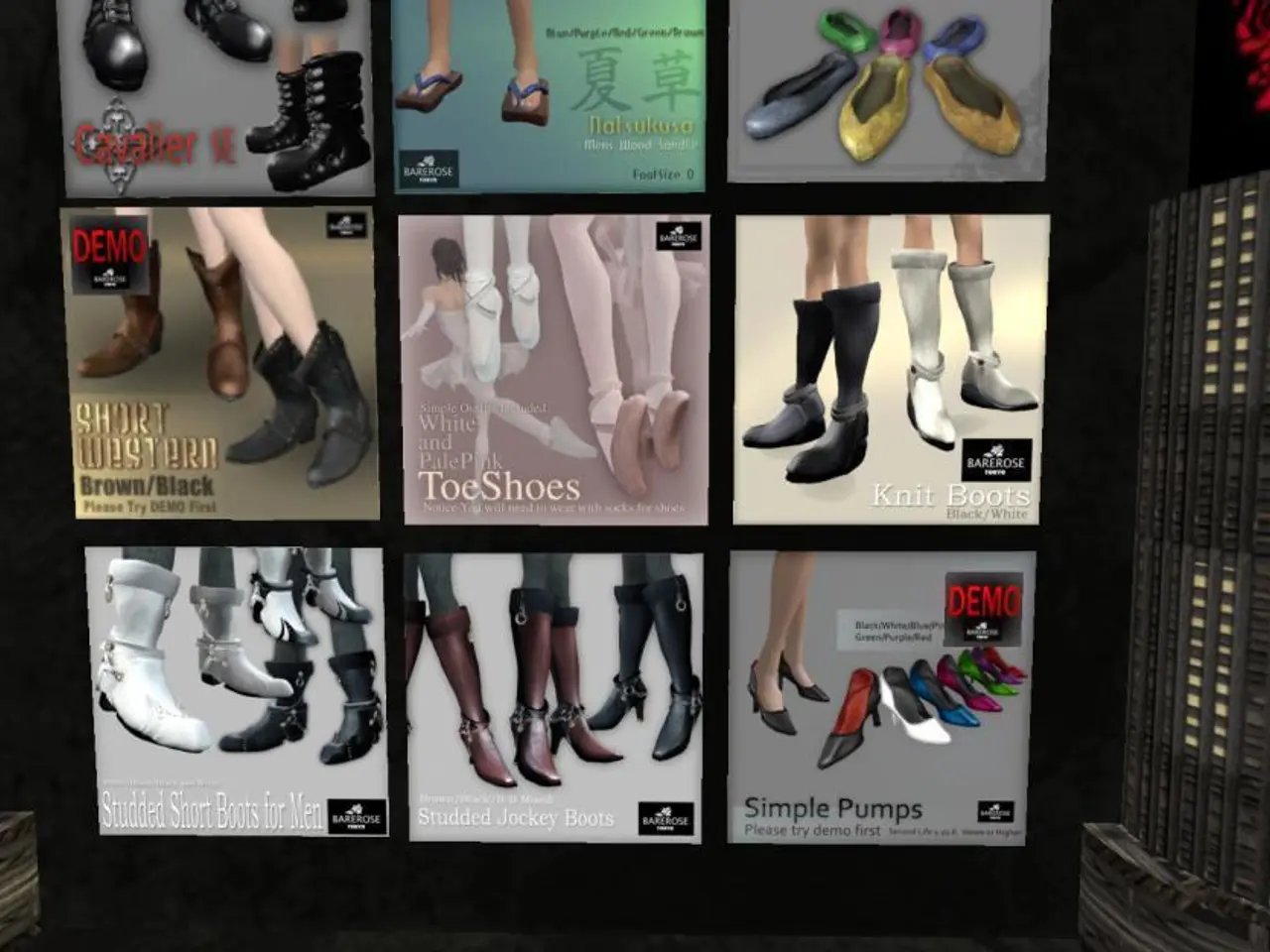Swiss-based shoemaker ON incurs profits for opting against Swiss production
In the world of footwear, a controversy has arisen surrounding On, a brand known for its record-breaking figures. The heart of the matter lies in the use of Swiss symbols and the manufacturing location of their shoes.
On's shoes do not bear the label "Made in Switzerland," but rather "Swiss Engineering." This choice has sparked criticism, with some arguing that the Swiss cross embroidery on On's shoes is a case of false advertising.
The use of Swiss symbols, such as the Swiss cross embroidery, is often associated with Swiss origin or quality. When these symbols are used on shoes manufactured in Southeast Asia, as is the case with On, it can be seen as deceptive if consumers assume the shoes are Swiss-made.
Furthermore, the term "Swiss Engineering" is often used as a marketing term implying precise Swiss design and quality control. However, if manufacturing occurs abroad without direct Swiss oversight, it may be misleading.
Laws in many countries, including Switzerland, regulate geographical indications and claim veracity to prevent such false or misleading marketing. Consumers and watchdog groups may raise complaints or negative reviews, accusing brands of exploiting the Swiss reputation without fulfilling Swiss-origin or quality standards.
While specific details on a large-scale public backlash or a lawsuit in 2025 were not found, such controversies typically involve consumer vigilance and regulatory scrutiny over such claims.
It's important to note that this controversy does not involve On's research, development, and product design, which all take place at its headquarters in Zurich. The shoes are manufactured in Southeast Asia, where manufacturing costs are lower.
This controversy raises ethical and legal questions about truthful product representation, particularly in the use of Swiss symbols or Swiss engineering claims on products manufactured outside Switzerland. It underscores the importance of clear and accurate labelling to prevent consumer confusion and maintain trust in brands.
For those seeking detailed case studies or regulatory actions related to this controversy, further targeted research would be necessary. It's also worth mentioning that NZZ.ch, a potential source of further information, requires JavaScript for its functions. Users are advised to adjust their settings to enable JavaScript on NZZ.ch to access its content fully.
Lastly, it's worth noting that the customs dispute between the USA and Switzerland has no impact on On. The brand continues to focus on its innovative designs and record-breaking figures, while navigating the complexities of consumer perceptions and regulations in the global market.
Read also:
- Unchecked Management of HP Dams Leads to Environmental Disaster: RTI Reveals
- Nordstrom taps prominent New York residents for their second advertising campaign in the city.
- Harnessing Magnetism's Potential: Revolutionizing Energy Production for a World Transformed
- Rivian is working on new technology to enhance the agility of its electric vehicles (EVs)






